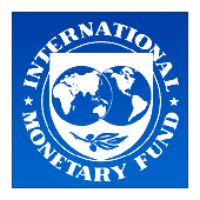EU mulls IMF solution to gas crisis threat

An International Monetary Fund-led loan to help Ukraine buy Russian gas is emerging as the favoured option to prevent another European energy crisis this winter.
A group of multilateral lenders – the International Monetary Fund (IMF), the World Bank, the European Investment Bank and the European Bank for Reconstruction and Development – is to meet with EU, Russian and Ukrainian officials in Brussels on Monday (29 June) to discuss anti-crisis measures.
Ukraine needs around $4 billion (€3bn) to stockpile Russian gas for winter when demand peaks. It also needs around $600 million by 7 July to pay for its monthly Russian gas consumption.
The option of private banks lending money to EU gas firms to help build stocks in Ukraine is falling by the wayside, EU officials indicated on Wednesday. Brussels ruled out using EU public money more than two weeks ago.
Any IMF-type loan would likely be made to the Ukrainian state, rather than state gas distributor Naftogaz. It might also be attached to the disbursement of the IMF’s next tranche of Ukraine’s $16.4 billion general economic crisis aid, due in coming weeks.
The gas crisis money would probably come with strings attached, such as oversight of and increased transparency in the Ukrainian state-owned firm.
Naftogaz is notoriously badly managed and heavily in debt, making it a risky business partner for the EU private banking or energy sector.
The January gas crisis, which saw Russia cut off Ukraine – a transit state for gas to the EU – for 10 days, left vast swathes of people in Bulgaria and Slovakia without heating in freezing weather.
But Russia came out the biggest loser in the dispute.
“Russia’s reputation suffered more than Ukraine’s, despite its massive PR campaign. Gazprom lost €2 billion and was forced to flare gas at a time when gas prices were the highest in history,” one EU official said.
When asked at the EU summit last Friday what the EU can do to help avoid a re-run of the problem, German Chancellor Angela Merkel said: “We are talking to Ukraine in various co-operation fora, as well as with the IMF, on how to increase transparency.
“There is a broad consensus in the [EU] that we have to put all our efforts to solve these issues thoroughly, not that they reappear every month.”

